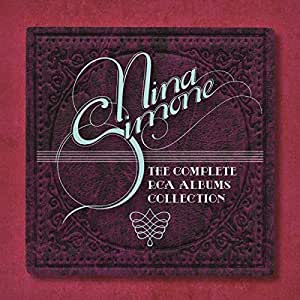By the time Cosmo’s Factory was released in the summer of 1970, Creedence Clearwater Revival was at its commercial peak. It was their fifth album in just two years and became a global success. In terms of sound, CCR move on the full range of their work: The single Travelin ‘Band is a reminiscence of the sound of Little Richard and a first-class rock & roll title. The 11-minute cover version of Marvin Gaye’s I Heard It Through The Grapevine complements the album with R’n’B influences and with Ramble Tamble psychedelic echoes are represented.
The album appears on the mini LP cover, a reproduction of the vinyl version released in Japan.
UHQCD stands for Ultimate High Quality Compact Disc and is a joint development of the Japanese CD replication company Memory-Tech and the Audio Quality CD Company from Hong Kong. Unlike conventional CDs, UHQCDs are not pressed from polycarbonate, but rather cast from a photopolymer and cured with UV light. Another layer of high-purity polycarbonate is applied to protect the softer photopolymer from scratching. The combination results in a significantly reduced reflection of the laser light inside the CD and an unequaled precise edge transition between pits and lands of the CD. UHQCDs are 100% compatible with normal CD players. Musically, the result is a sound that is strongly reminiscent of analog master tapes.
The discs offered by Universal Japan are also MQA (Master Quality Authenticated) encoded. Anyone who outputs the digital signal from the digital output of their CD player or the previously ripped data stream from their music server to a corresponding MQA-DA converter can generate a 24-bit signal with a sampling frequency of up to 352 kHz from the CD data.
The current UHQCD series is based on the DSD data of the single layer SHM-SACDs from Universal Music Japan that were published in the years before. The UHQCDs are therefore ideal for music lovers who want to get as close as possible to the sound of the recording, but do not have an SACD player.














